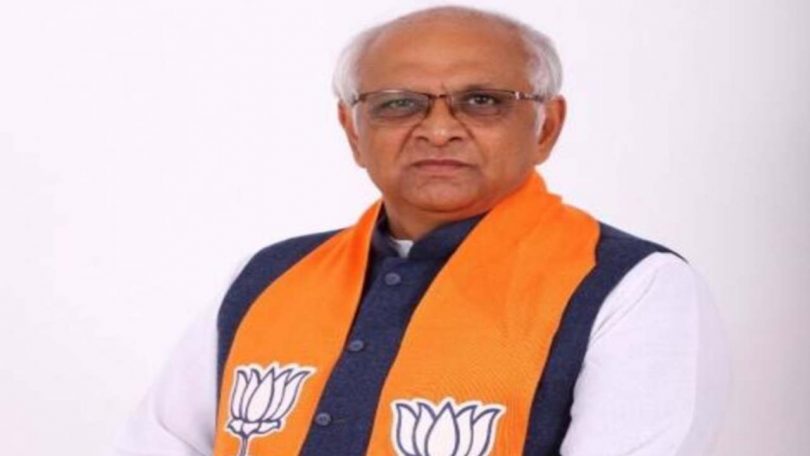First-term MLA Bhupendra Patel on Monday took oath as 17th Chief Minister of Gujarat, two days after Vijay Rupani’s surprise exit from the post. Patel (59), unanimously elected BJP legislature party leader on Sunday, was sworn in as the state’s 17th Chief Minister by Governor Acharya Devvrat at a simple ceremony.
Union Home Minister Amit Shah and Chief Ministers of some BJP-ruled states were among those present at the Raj Bhavan ceremony. As decided by the party, only Patel took the oath. The council of ministers will take oath during the next few days after their names are finalised, BJP sources said.
The Governor had on Sunday invited Patel to take oath as Chief Minister. “The new leader of BJP’s Legislature Party Bhupendrabhai Patel presented a proposal to form the government under his leadership. Accepting the proposal, he was invited to take oath as CM on September 13 at 2.20 pm,” Devvrat tweeted.
At Sunday’s legislature party meeting, the proposal to elect Patel the legislative party leader was moved by Vijay Rupani, whose resignation as CM on Saturday, 15 months ahead of the Assembly polls, surprised many political observers. Rupani, the fourth Chief Minister to demit office in BJP-ruled states during the coronavirus pandemic, was sworn in as Chief Minister his second stint as CM – in December 2017 and completed five years in office on August 7 this year.
Meanwhile, Prime Minister Narendra Modi congratulated Patel on taking oath as CM of Gujarat. “I have known him for years and have seen his exemplary work, be it in the BJP Organisation or in civic administration and community service. He will certainly enrich Gujarat’s growth trajectory,” he tweeted.
With state Assembly polls scheduled in December 2022, the BJP is banking on Patel, a Patidar, for poll victory. In the 2017 Assembly elections, BJP won 99 of the 182 seats and Congress got 77. The Patidars are a dominant caste in Gujarat with a sizeable control over the electoral votes and dominate the political economy with a stronghold over education, realty and cooperative sectors.
Patel’s elevation – he is the first from the Patidar sub-group to be chief minister – is key to BJP’s plans to woo the Kadva Patidar community, which some political observers feel, has drifted away from the party. He is a trustee of Sardardham, the Patidar community organisation that hosted the programme where Prime Minister Narendra Modi was the chief guest on Saturday.
Born in Ahmedabad, Patel is an MLA from the Ghatlodia seat, previously held by former chief minister and now Uttar Pradesh Governor Anandiben Patel. He won the seat by over 1.17 lakh votes in 2017, the highest margin in that poll. Ghatlodia is part of the Gandhinagar Lok Sabha constituency represented by Shah.
Patel, who holds a diploma in civil engineering, has served as Ahmedabad municipal councillor and as the chairperson of the Standing Committee of Ahmedabad Municipal Corporation and Ahmedabad Urban Development Authority. He is also a trustee at Patidar organisation Vishwa Umiya Foundation.
Patel has never held a ministerial post, just like Prime Minister Narendra Modi, who was never a minister when he became Gujarat CM 20 years ago. Modi was sworn in as CM on October 7, 2001, and became an MLA on February 24, 2002, by winning the Rajkot seat bypoll.
Patel is considered close to former Gujarat chief minister and present Uttar Pradesh Governor Anandiben Patel. His Assembly constituency is part of the Gandhinagar Lok Sabha seat represented by Shah.
The BJP’s CM choice came as a surprise for many as the low-profile, first-time legislator was not seen to be among the top contenders for the post. Gujarat BJP chief C R Paatil said Patel’s work at the grass-root level, his hold on the cooperative sector, association with party workers and administrative abilities were among the factors that led to his elevation.






